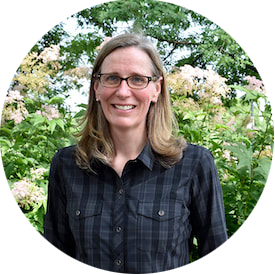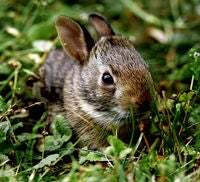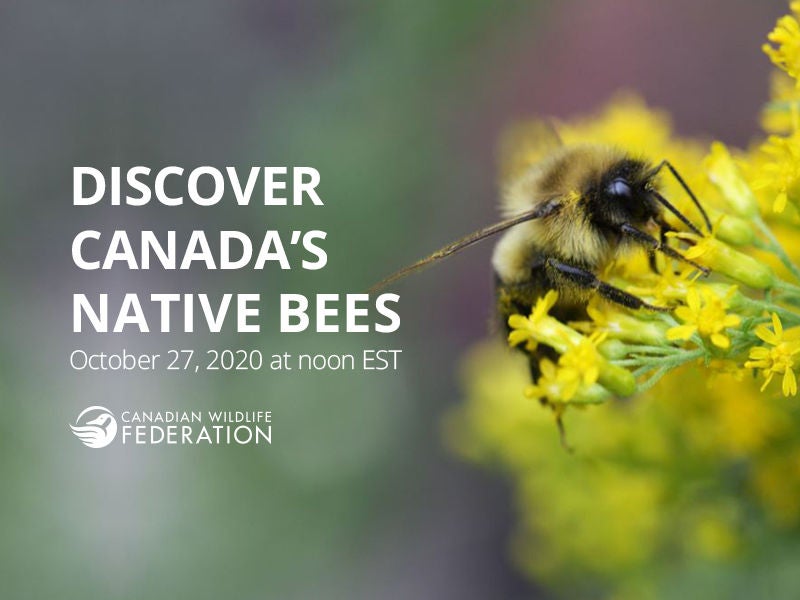Apr 10, 2021
CWF
Apr 10, 2021
CWF
Saturday, April 10, 2021 at 1:00 p.m. EST. Join the Canadian Wildlife Federation as Heather Holm, researcher and award-winning author, shares her valuable insights on supporting bees and other beneficial insects. Learn about the importance of insect pollination and the bees responsible for pollinating the fruits and vegetables we grow in both home and commercial landscapes. Heather will discuss the genera of bees responsible for the majority of the pollination and the additional forage (flowering plants) you need to provide to ensure that the 'flower buffet' is always open, even when the fruit or vegetable plants are not in flower. You’ll also learn about the beneficial insects that the native flowering plants will attract and how these insects can help reduce insect pest populations in your fruit or vegetable garden.
Please note that this webinar will NOT be recorded.
About Heather Holm

Heather Holm is a biologist, pollinator conservationist, and award-winning author. In addition to assisting with native bee research projects, she informs and educates audiences nationwide, through her writing and many presentations, about the fascinating world of native pollinators and beneficial insects, and the native plant communities that support them. Heather’s expertise includes the interactions between native pollinators and native plants, and the natural history and biology of native bees and predatory wasps occurring in the Upper Midwest and Northeast.
Heather is a National Honorary Director of Wild Ones. She also serves on the board of the Friends of Cullen Nature Preserve and Bird Sanctuary, a 501(c)3 non-profit. In her spare time, Heather is an active community supporter, writing grants and coordinating neighborhood volunteer landscape restoration projects. Currently, she is working on three projects with volunteers, restoring approximately ten acres of city-owned park land in her neighborhood for pollinators and people. She grew up in Ontario and now lives in Minnesota with her husband.
Learn more: Pollinatorsnativeplants.com
- 0
- 1
- 2









